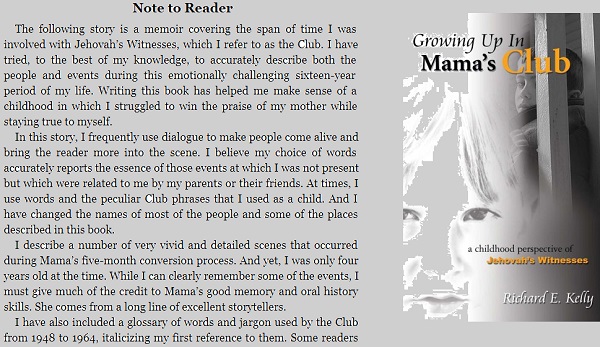In an issue of The Watchtower magazine from a few years ago, no doubt was left as to how Jehovah’s Witnesses should treat family members who have been “disfellowshipped,” or ex-communicated, from the religion. “Really, what your beloved family member needs to see is your resolute stance to put Jehovah above everything else – including the family bond,” warns the magazine on page 16, before asserting, “Do not look for excuses to associate with a disfellowshipped family member, for example, through e-mail.”
Shunning.
Jehovah’s Witness is not the only religion that calls upon its followers to ostracize anyone who leaves the faith. Described as psychological torture by University of California-Davis Professor Almerindo E. Ojeda, such social rejection is used in the United States by Anabaptists (the Amish, Mennonites, Hutterites), Scientology, and the Baha’i Faith, among others.
Some contemporary evangelical Protestant churches have renewed the practice of shunning, as in the case of a 71-year-old former Sunday school teacher who was arrested on trespassing charges after questioning her pastor’s authority.
The practice can have devastating consequences.
In 2011, Eric Reeder was disfellowshipped from the Jehovah’s Witnesses after sustaining injuries in a motorcycle accident that led to a blood transfusion – a medical treatment prohibited by the religion. His family subsequently shunned him in accordance with the faith’s rules.

Eric posted about his predicament in an online forum for ex-Witnesses in August of that year, admitting, “The only thing I am really going to miss is my folks … my dad is a hardcore elder and has told me he will no longer be able to speak to me 100% of the time.” In April 2012 he wrote that he was “still not used to my parents totally shunning me …” before adding, “It’s so hard … nobody should have to lose their parents twice.” By the end of September, Eric was found dead at age 51. He had killed himself.
Nobody can be certain what dark thoughts were swirling through Eric’s mind when he took his own life, or what finally drove him to such a desperate act. But we do know that in the preceding months, Eric was deeply tormented by the ostracism inflicted on him by members of his family.
While The Watchtower Society, the name of the legal entity used by Jehovah’s Witnesses, proudly publishes annual statistics related to its worldwide evangelism work, there are no official figures for those who are shunned, and no way to confirm how many of these former members, like Eric, feel desperate enough to take their own lives. However, one can find a great deal of anecdotal evidence on Internet forums frequented by Ex-Witnesses. One well-known researcher, Terri O’Sullivan, reported that being shunned worsens one’s mood within 60 seconds.

In the absence of any popular or political impetus to address the issue of religion-incited shunning, I am proud to be part of an organization that dares to face it head on. Advocates for Awareness of Watchtower Abuses (AAWA) has been established to educate the world via its website (www.aawa.co) about some of Watchtower’s most shocking practices.
While these are often pardoned in the name of religious freedom, there are instances where governments have successfully sanctioned extreme shunning:
“The Jewish tradition frequently confronted this issue in the many Eastern European communities where the government outlawed the use of excommunication and shunning. Not surprisingly, when confronted with significant governmentally imposed sanctions against this practice, the Jewish authorities ceased using exclusion as a method of community formation or maintenance,” states an article by Michael J. Broyde, academic director of Emory University’s Law and Religion Program.
My colleagues and I believe that the shunning of relatives and friends represents mental and emotional abuse. Modern society must no longer allow Watchtower to promote this barbarous practice through printed word or otherwise. For the Silo Richard E. Kelly.
